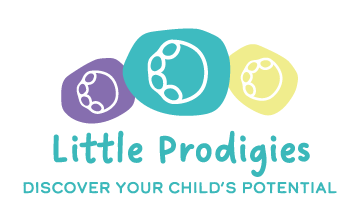Little Linguists: The benefits of growing up bilingual (or multilingual!)
Have you ever wondered if speaking more than one language at home might confuse your little one? You’re not alone. This is one of the most common questions parents ask us! The good news is that babies and toddlers are natural language learners. Far from being confusing, growing up in a bilingual or multilingual home can give children lifelong benefits: social, cognitive, and emotional.
1. Babies are language sponges
From birth, babies are wired to recognise and distinguish between different sounds. Research shows that babies exposed to more than one language can tell them apart, even before they say their first word. This early exposure builds a strong foundation for communication and adaptability.
✨ Activity idea: Try singing lullabies or nursery rhymes in different languages. Repetition helps, and it’s a lovely bonding ritual.
2. Boosts brain development
Children who grow up hearing more than one language often show enhanced problem-solving skills, memory, and creativity. Switching between languages gives their brains a gentle workout, strengthening cognitive flexibility.
✨ Activity idea: Play simple naming games (“Where’s the ball? / Où est le ballon?”). Your child will love pointing and responding, even if it’s just with a giggle!
3. Builds connection with family & culture
Language is more than just words; it’s songs, jokes, traditions, and love. Speaking your family’s languages at home strengthens your child’s bond with grandparents, cousins, and the community. It also nurtures a strong sense of identity and belonging.
✨ Activity idea: Share family stories or look through photo albums while chatting in your home language.
4. Encourages empathy & social skills
Multilingual children often develop a heightened awareness of others. They learn early on that people can see and express the world in different ways, which helps build empathy and social confidence.
✨ Activity idea: Arrange playdates with other bilingual families or attend classes where multiple languages are celebrated.
5. No, it doesn’t cause confusion!
One common myth is that learning two (or more) languages at once delays speech. In reality, children might mix languages at first (known as “code-switching”), but this is a normal and positive part of their learning journey. Over time, they naturally sort it out.
✨ Tip for parents: Stay consistent, patient, and positive. If possible, stick to “one person, one language” at home, it gives your child clear models to follow.
Conclusion
Raising a little linguist is a gift that will keep giving for a lifetime. Whether it’s connecting with family, thriving at school, or embracing the world with open arms, the benefits of being bilingual (or multilingual!) begin in babyhood.
👉 Curious about more early learning tips? Check out our other blogs for ideas to support your baby’s development.
